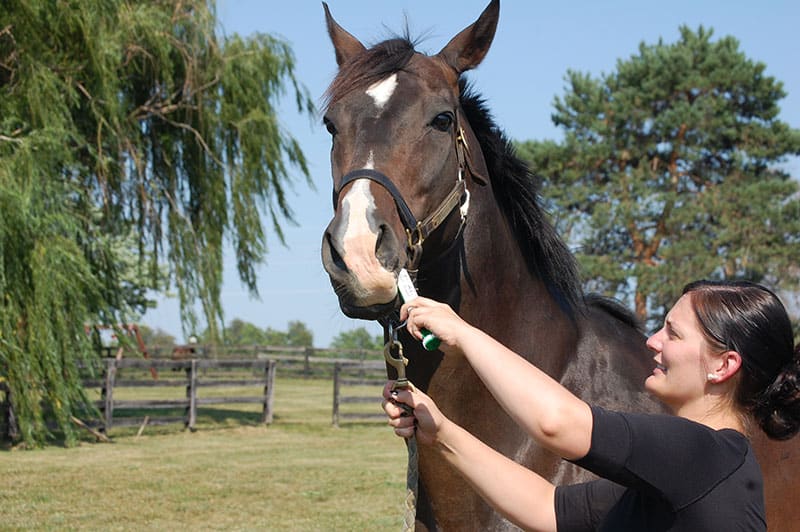Common Dewormers: Still Effective Against Small Strongyles?

In the study, nearly 1,000 horses from 67 farms in the mid-Atlantic region of the United States received one of four different deworming products. At the same time a fecal sample was collected for analysis for parasite eggs. The horses with strongyle fecal egg counts totaling over 200 eggs per gram were retreated with fenbendazole, oxibendazole, or pyrantel pamoate. Of those horses, only 6%, 21% and 43%, respectively, showed fecal egg count reductions greater than 90%.
“On the majority of farms sampled, these three products performed poorly,” said study author Meagan A. Smith, DVM, Dipl. ABVP, staff veterinarian for the University of Pennsylvania’s School of Veterinary Medicine’s Field Service.

Currently, ivermectin and moxidectin—two macrocyclic lactone medications—still offer good control against small strongyles. “Their continued efficacy is significant because so far they are the only available dewormers for horses that still have consistently good activity against strongyles,” she said
Create a free account with TheHorse.com to view this content.
TheHorse.com is home to thousands of free articles about horse health care. In order to access some of our exclusive free content, you must be signed into TheHorse.com.
Start your free account today!
Already have an account?
and continue reading.
Written by:
Katie Navarra
Related Articles
Stay on top of the most recent Horse Health news with











